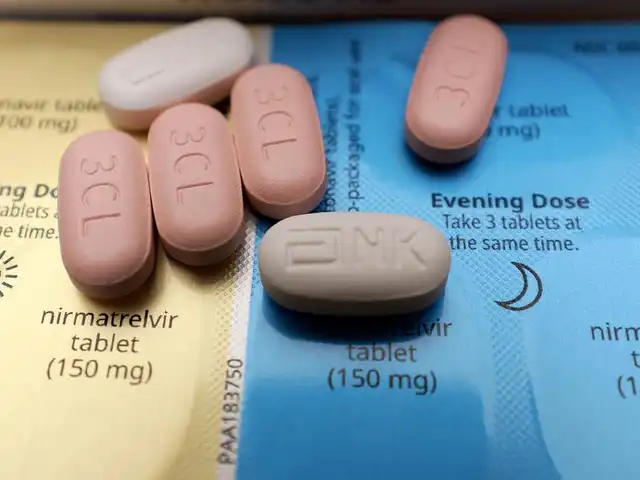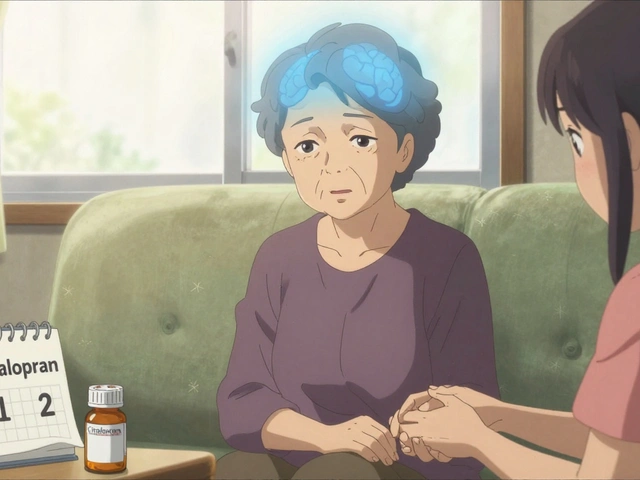If you think malaria is just a problem from the past, think again. Over 600,000 people died from it last year, and the fight is far from over. You might not see it every day, but in a lot of places, this mosquito-borne disease is still a massive threat—especially for little kids.
The thing that's kept us afloat? Scientific research. It’s behind every mosquito net, rapid blood test, and vaccine. No wild lab coats or Hollywood drama—just stacks of smart research pushing for the next real-world fix. Thanks to all that work, new treatments and prevention tools aren’t just an idea—they’re saving lives.
But malaria is slippery. The parasite and mosquito are clever at dodging attacks and changing up their game. If you travel to or live in a malaria-risk area, you really need to know what works now, not what worked a decade ago. That's why keeping up with what research uncovers is not just interesting—it's practical, and honestly, it’s a matter of life and death for millions.
- Why Malaria Remains a Challenge
- Game-Changing Discoveries in Malaria Research
- How Research Shapes Everyday Prevention
- Getting Involved: What You Can Do
Why Malaria Remains a Challenge
Malaria doesn’t play fair. It’s stubborn, clever, and adapts fast. The disease comes from a parasite called Plasmodium, carried by certain types of mosquitoes—mainly the female Anopheles. Every time these mosquitoes bite, they can pass on the parasite to someone new. That’s why just killing off some mosquitoes never solves the problem for good.
What makes things hard is how the malaria parasite changes. It mutates to dodge drugs, and mosquitoes themselves are getting smarter about dodging common sprays. For years, doctors used chloroquine like a silver bullet, but in many places, the parasite now ignores it completely. The same thing started happening with newer drugs, so scientific research has to stay one step ahead.
Here’s another kink—malaria isn’t the same everywhere. There are different kinds of Plasmodium that do slightly different things, and each region has unique challenges. For example, what works to stop malaria in parts of Southeast Asia might not work in sub-Saharan Africa.
Poverty and weak health systems are a big part of the struggle. In some regions, basic tools like mosquito nets or blood tests are hard to get. When there aren’t enough trained health workers, people might not get diagnosed or treated in time—sometimes not at all.
The numbers speak for themselves:
| Region | Malaria Cases (2023) | Deaths (2023) |
|---|---|---|
| Sub-Saharan Africa | ~210 million | ~580,000 |
| Southeast Asia | ~10 million | ~7,000 |
| South America | ~1 million | ~800 |
Poor access to prevention and treatment, fast-changing mosquitoes, and stubborn parasites all keep malaria on the world’s worry list. That’s why the role of scientific research is so critical—because static solutions just don’t make the cut when the enemy keeps changing its strategy.
Game-Changing Discoveries in Malaria Research
The progress against malaria really picked up when scientists figured out the full life cycle of the parasite in the 20th century. That cracked the code for much of today’s work. First came better drugs: chloroquine once worked wonders, but resistance is tricky, so now artemisinin-based treatments do most of the heavy lifting. These drugs act fast and clear the parasite before it can do its worst. Yet the parasite keeps changing, so researchers keep tweaking and improving combinations to stay ahead.
One true game-changer was the insecticide-treated bed net. A simple idea—sleep under a bug-proof net treated with chemicals that kill mosquitoes. This single tool slashed infection rates, saving millions. Later, researchers improved rapid testing. Instead of waiting days for lab results, now a drop of blood can show if someone has malaria in just minutes. Hospitals—and travelers—rely on these quick checks all the time.
The biggest news lately? The world’s first malaria vaccine, RTS,S (often called Mosquirix). It’s not perfect—about 1 in 3 children who get the vaccine stay malaria-free—but even that saves thousands of lives. In 2023, the World Health Organization finally began recommending it for kids in high-risk areas. Another shot, R21/Matrix-M, is also on the way and could be even more effective.
Here’s a quick look at some landmark solutions and their impact:
| Breakthrough | Year | Impact |
|---|---|---|
| Insecticide-Treated Nets | 1990s | Dropped infection rates by up to 50% in some countries |
| Artemisinin Drugs | 2000s | Quick clearing of parasites; became global treatment standard |
| Rapid Diagnostic Tests | Late 1990s | Instant results, made early treatment possible |
| RTS,S Vaccine | 2021/2023 rollout | Reduces severe malaria in young children |
All these breakthroughs started with focused scientific research. Without labs and field studies, these tools wouldn’t exist. Each one changed the game in its own way, moving us a step closer to making malaria history.

How Research Shapes Everyday Prevention
Research doesn’t just happen in labs—it lands in your home, at your bedside, even on your skin. Thanks to decades of scientific research into malaria, we've got tools and strategies that actually make a difference every day, especially in places where the disease still hits hard.
First, think about bed nets. The old-school nets were okay. But once studies proved insecticide-treated nets could cut malaria cases in half, they became standard. Now, new versions use slower-release insecticides to outsmart mosquitoes that have started ignoring the old stuff. If you’re traveling to a malaria hotspot, it matters which type of net you use—always check if it’s treated with the latest approved chemicals.
Spraying walls inside houses with safe insecticides is another major win. Research found that when whole villages did this at the right time of year, everyone’s risk dropped. Some programs even use smart mapping data to spot where to spray more often.
The way we diagnose malaria is also a direct result of research. Those rapid tests doctors use now? Much faster and more reliable than waiting on old-school microscopes. That means people get treatment quicker, upping their odds of a full recovery, and reducing the spread.
If you want the numbers, check out what studies have shown about prevention strategies:
| Prevention Tool | Effectiveness (Reduction in Malaria) |
|---|---|
| Insecticide-treated Bed Nets | ~50% |
| Indoor Residual Spraying | ~40% |
| Use of Rapid Diagnostic Tests | Quicker diagnoses, fewer missed cases |
Everyday choices matter, too. Because research keeps finding new things, regular updates happen for travel meds, local spraying calendars, and even smartphone alerts for outbreaks. If you’re in an area where malaria is a risk, stay tuned to local health updates—they’re fueled by non-stop data and fieldwork from researchers around the world.
- Always sleep under a new-generation bug net when in a risk zone.
- Don’t ignore local warnings about spraying or outbreaks—even one skipped season can set things back.
- If you feel off and you live in—or just visited—a country with malaria, ask for a rapid test right away.
Everything we do to avoid malaria is powered by research, so it pays to listen and adapt. What protected you five years ago might not cut it against today’s mosquitoes—and keeping up with the facts could literally keep you out of the hospital.
Getting Involved: What You Can Do
You don’t need to be a scientist to make a difference in the fight against malaria. Everyday choices can really add up, whether you live in a malaria zone, travel there, or just want to help reduce the impact of this disease.
- Use protection: If you’re heading to a place where malaria is a risk, sleeping under an insecticide-treated bed net is one of the top ways to stay safe. WHO-approved nets lower infection risk by about 50% in kids under five. Spray low-traffic areas in your home with mosquito repellents and close windows around sunset if you’re living in or visiting high-risk spots.
- Stay sharp about symptoms: Get to know what malaria looks like—fever, chills, sweating, headache, and tiredness are common signs. In risky areas, always get a malaria test right away if you feel sick; rapid diagnostic tests are now widely available thanks to ongoing scientific research.
- Take your meds seriously: If you’re prescribed preventive medication, take it as directed every single day—not just when you remember. Research shows missing doses is a big reason preventives fail.
- Support research and charities: Even if you’re not in an at-risk country, donations to organizations funding malaria research—like Malaria No More, the Gates Foundation, or Medicines for Malaria Venture—directly support new treatments and prevention tools. Every breakthrough helps push global cases down.
- Share info that’s accurate: There’s a lot of confusion about malaria. Share accurate advice with friends and family—don’t just forward random posts. Check sources like the CDC, WHO, or the Malaria Consortium for updates.
Want to know what kind of impact these actions can have? Just look at this:
| Action | Estimated Reduction in Malaria Risk |
|---|---|
| Sleeping under treated bed net | Up to 50% |
| Using indoor spraying | 30-60% |
| Taking preventive medication | Nearly 90% (for travelers) |
The truth is, staying ahead of malaria means using the best of what scientific research can offer—both at home and on the road. Little things, like using the right net or sharing trusted tips, really do save lives.







12 Comments
This article is a wake-up call, honestly! Malaria isn't some distant issue anymore; it's a pressing global health crisis that deserves way more attention and funding than it’s currently getting. Vaccines and rapid tests are amazing, sure, but the real breakthrough comes from the relentless effort of scientists tirelessly pushing boundaries every single day. We need to challenge the complacency that creeps into public discourse where malaria is often shrugged off as just an 'African problem.'
Investing in research is not just about finding a cure; it’s about saving lives, reducing economic burdens, and ensuring global stability. Why do some governments seem so apathetic about supporting this vital research? It’s almost criminal when you think about the hundreds of thousands who succumb to malaria yearly. We’ve got the brains, we’ve got the tech, so what gives?
Anyway, this article lays it out simply — understanding and fighting malaria requires a global, collaborative mindset and unwavering action. Let’s keep the pressure on for more innovation, better access, and real, on-the-ground solutions.
Oh my gosh, yes!!! Every point you make here is spot-on!!! It’s SO important to highlight how research changes the whole game in fighting malaria!!! 🌟
This fight is so much bigger than just a medical challenge; it’s a humanitarian cause, a challenge for us all to step up!!! What makes me hopeful is the recent progress in vaccines – that never seemed possible before! 😊 Malaria affects millions, but with science and global cooperation, we can turn the tide!!
And don’t forget the people on the ground – education and resources are vital – prevention can’t just be about meds, it’s got to be about accessibility and awareness too. Keep shining the light on this!!! 🙌🙌🙌
Look, the title itself screams it: scientific research is the only way forward, no two ways about it. Yet can we honestly trust the current system? Many countries dump resources into vanity projects rather than tackling root causes.
If you’re not investing in infrastructure and education in vulnerable areas, then all this fancy vaccine talk is just hype. Everyone talks about discovery shaping survival, but survival without sustainability is just a temporary fix. It puzzles me that some people don’t see the bigger picture — research without political will and proper distribution networks is worthless.
That said, I do respect the advances, but we need to be brutally honest about what’s missing because malaria won't be defeated by lab coats alone.
Ah, the philosophical quandary of scientific progress in public health — it’s a profound dance between nature and human endeavor! 🌿✨
This article really captures the essence of that interplay, where the mysteries of malaria meet the tireless curiosity of researchers. Each breakthrough, from vaccines to rapid tests, is like a beacon piercing the shadowy challenges that this disease imposes.
Yet, one must ponder: how do we balance the rush for immediate solutions against the enduring ethical concerns and equitable access? Science, after all, is not merely a tool but a narrative we craft about survival, hope, and responsibility. Isn’t that something worth reflecting on? 😊🔬
It’s refreshing to see such emphasis on the true impact of research here, but I can't help but notice how the narrative tends to overlook critical systemic issues such as healthcare infrastructure and political will. Scientific discoveries alone don’t instantly translate to survival or improved quality of life when populations lack access to basic healthcare services.
This interplay between discovery and survival is far more complex than just breakthroughs in vaccines or diagnostic tools. For instance, how effective can rapid tests be if distribution networks or trained personnel are scarce? Or how do vaccines function within communities where mistrust of medical systems runs deep?
While I admire the optimistic tone of the article, we must scrutinize the multifaceted barriers keeping these scientific marvels from reaching the most vulnerable. Progress depends on more than just labs and research funding — it demands an integrated societal effort that includes policy reform, education, and sustainable implementation.
Okay, everyone’s bringing up valid points about research and systemic issues. But let’s be real for a second — backing research isn’t just some idealistic notion, it’s the foundation that gives us tools to even THINK about overcoming malaria.
Yes, infrastructure matters, policy matters—but without that initial discovery, we’d still be stuck in the dark ages. Those vaccines and rapid tests didn’t fall from the sky; they’re the result of decades of relentless science. The question isn’t research or infrastructure, it’s how do we get both to work together faster and more efficiently.
This means funding priorities need shaking up, and global cooperation must go beyond lip service. We all have a role: researchers, governments, communities—it’s a collective fight!
Honestly, this whole discussion kinda boils down to a big messy puzzle, doesn’t it? Whether it’s vaccines, rapid tests, healthcare access, or political commitment, all the pieces have to align.
Malaria’s not just biology — it’s societal, economic, and political. But I’m with those saying research is the spark that lights the way. Without that spark, nothing else happens.
Feels like we all want progress but struggle with too many moving parts. Maybe what we need is better communication between scientists, politicians, and the public so efforts don’t get lost in translation. Something to chew on.
I cannot stress enough how much people underestimate the power of education alongside these medical advances!! Malaria is more than just a sickness—it ruins communities, burdens families, and strips hope. All the scientific advancements in the world won't truly matter if people aren't aware of how to protect themselves or understand the importance of treatment protocols.
We urgently need to fuse research findings into community outreach and public health programs, especially in rural and underserved areas where malaria hits hardest. This isn’t just a health issue—it’s a moral obligation of the global community. Let’s channel passion into action beyond the lab.
I appreciate the depth of this article and the attention it brings to the ongoing fight against malaria 😊💡. In my experience, the emotional and ethical dimensions of this fight are as important as the scientific ones. Imagine being held hostage by a disease because of socio-economic factors beyond one’s control – it’s heartbreaking.
The facts and real stories shared here are crucial because they humanise the statistics and remind us that behind every patient is a story of resilience and hope. The continued push for rapid detection and better vaccines must, however, be matched with empathy and genuine partnership with affected communities.
Only then can we say we are truly fighting malaria in a way that respects and uplifts human dignity. 🙏🏽💛
It’s clear from the thread that tackling malaria is way more complex than simple scientific discovery. What struck me most in the article was how it also emphasized practical tips for staying safe — something often overlooked in purely research-focused reports.
Indeed, even with advances like vaccines, education and prevention remain front-line tools. The synergy of science, awareness, and community involvement is what can ultimately tip the balance in favor of survival. So much of this boils down to accessibility, yes, but also user trust and consistent public messaging.
Combining these elements thoughtfully seems like the most effective approach. What do others think about how these aspects can unify better moving forward?
Just observing here, but it’s interesting to see the variety of perspectives on crises like this one. Research, infrastructure, politics – they all play parts that overlap.
I reckon, pragmatically, no single element is enough on its own. You need science to create solutions, politics to implement them, and awareness to sustain them. The article does a solid job of touching these, but the real world is messy and fragmented.
Maybe focusing more on collaborative models that join these sectors could be the way forward. It’s definitely not easy but it’s worth striving for.
Adding onto the previous points, I want to stress how vital it is that discussions like this don't get stuck in idealism or siloed thinking. The fight against malaria is a perfect example of where interdisciplinary and cross-sector collaboration is indispensable.
Academic research, public policy, healthcare practice, and community engagement must all intertwine strategically for real impact. There’s no silver bullet. Only systematic, sustained efforts that tackle the root causes—poverty, access disparities, health illiteracy—alongside cutting-edge science will win this battle.
This article is a helpful start in raising awareness but let’s keep pushing for a holistic lens in everything we do around malaria and global health.
Write a comment